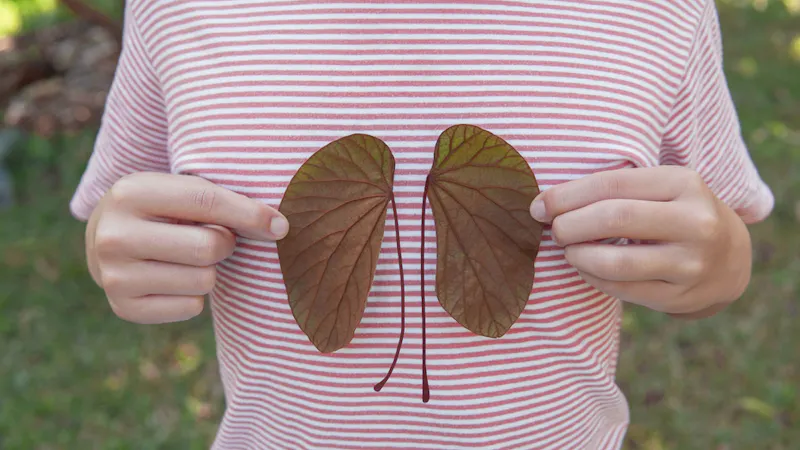Kidney disease: How do you prevent it?
What's covered?


Your kidneys are two bean-shaped organs below the rib cage on either side of your spine. They're essential for filtering water and waste from your blood through your pee. They also play a vital role in producing hormones, red blood cells, and regulating your blood pressure. Learn about the causes and symptoms of CKD and how to prevent it with expert lifestyle advice.
What’s kidney disease?
Kidney disease results from damage, so they can’t filter your blood normally to eliminate excess water or waste products.
There are two main types of kidney disease, including:
- Acute kidney disease — your kidneys stop working suddenly, usually due to another health condition.
- Chronic kidney disease (CKD) — a long-term illness where your kidney function declines over several years.
CKD happens in five stages — from mild disease to kidney failure. CKD worsens over time, so early diagnosis and prevention are essential. The good news is, with effective management, you can still live a long life with this condition.
What are the symptoms of CKD?
You mightn’t have any symptoms during the early stages of CKD. So the only way to detect it is through a blood or urine test.
But if you have advanced CKD, you might experience the following symptoms:
- tiredness
- swollen ankles, feet, or hands
- shortness of breath
- feeling sick
- blood in your pee
What are the stages of CKD?
There are five stages of kidney disease, which range from mild loss of kidney function to complete kidney failure.
Stages 1 and 2
Kidney damage is mild in the first two stages. They might still work well, and you might not notice any symptoms.
When it reaches stage two, there might be some physical kidney damage.
Stage 3
Damage becomes mild to moderate in stage three.
Your kidneys can’t filter waste and water out of your body as well as they should — leading to waste buildup. And this can lead to high blood pressure, anaemia, and bone problems.
You might begin to notice symptoms at this stage. Damage is typically not reversible at this point, but you can slow it down.
Stage 4
Your kidneys are moderately to severely damaged in stage four. So it’s essential to slow down the damage and plan for possible treatments.
Your symptoms might include:
- feeling weak or tired
- swollen legs and arms
- weeing more or less often than usual
- pain in your lower back
- muscle cramps
- feeling sick or vomiting
- feeling less hungry
Stage 5
Stage five kidney disease is severe, and your kidneys are close to or have already failed.
Most patients need dialysis or a transplant at this point. Dialysis is a procedure to remove waste products and excess fluid from your blood. It often involves sending blood from your body to a machine for cleaning.
What causes CKD?
Many things can cause CKD. But most often, it results from a combination of factors.
For example, your organs age as you do, so they might not work as well as they once did. Studies show that 44% of people over 70 have stage 1 to 4 chronic kidney disease.
Medical conditions and other factors associated with kidney disease include:
- high blood pressure — this puts a strain on the blood vessels in your kidneys
- diabetes — high blood sugar levels damage the filters in your kidneys
- high cholesterol — this can lead to fatty deposits building up in the blood vessels of the kidneys
- kidney infections
- glomerulonephritis — your kidney becomes inflamed
- polycystic kidney disease — an inherited disease where cysts develop on your kidneys
- kidney stones — these can cause blockages
- an enlarged prostate
- long-term use of non-steroidal anti-inflammatory drugs — like aspirin or ibuprofen
Kidney disease prevention and treatment
The good news is, following a healthy diet and lifestyle can reduce your risk of developing CKD and slow its progression if you already have this condition.
Some lifestyle changes that help to reduce blood pressure, your risk of heart disease, and your risk of CKD include:
- quitting smoking — smoking increases your risk of heart disease and CKD
- following a healthy diet — maintains healthy blood pressure and cholesterol levels
- manage your alcohol intake — aim for no more than 14 units of alcohol spread over the week, as excessive amounts of alcohol can raise blood pressure
- exercise regularly — to help lower your blood pressure
You should speak to your doctor before quitting smoking, changing your diet, or increasing your exercise. They can help you do this safely.
Unfortunately, there’s no cure for CKD. But most people can control this condition with medications and regular check-ups. Around 1 in 50 people progress to kidney failure.
CKD puts you at an increased risk of developing heart disease. So making diet and lifestyle changes and taking prescribed medications can help reduce your risk of developing other conditions.
Foods to avoid with kidney disease
The good news is, there are certain foods and drinks you can consume less of to help reduce your risk of CKD or manage its progression.
Opt for a low-salt diet
You should consume less than 2.3 grams of sodium a day — this equates to 5.8 grams of salt. You can do this by avoiding ready meals and adding extra salt to your food.
Limit your protein intake
Your body produces waste when you eat protein (meat, chicken, and fish). And damaged kidneys struggle to filter out this waste, meaning they need to work harder.
With this in mind, you should aim for a couple of meat-free meals during the week.
Avoid foods high in saturated fat
Foods high in saturated fat can increase your risk of developing heart disease.
These include:
- fatty cuts of meat — like sausages
- butter, ghee, and lard
- hard cheese — like cheddar
- cream, soured cream, and ice cream
- some savoury snacks — like cheese crackers and some popcorn
- chocolate confectionery
- biscuits, cakes, and pastries
Limit your alcohol intake
Excessive alcohol can damage your kidneys.
You should aim for no more than 14 units a week. And you should try to spread this out evenly with a few alcohol-free days.
Learn more about how alcohol affects your health.
Choose foods and drink with less phosphorus
When your kidneys aren't working properly, phosphorus (a mineral) builds up in your body, leading to calcium loss in your bones, and weakening them.
Foods high in phosphorus include:
- meat, fish, and poultry
- bran cereals
- oats
- dairy
- beans
- lentil
- nuts
- dark-coloured fizzy drinks
Avidong high-phosphorus foods help to protect your bones and blood vessels if you have CKD.
Avoid foods high in potassium
Potassium is a mineral that helps your nerves and muscles work properly. But too much potassium from food can build up in your body if you have kidney problems.
High potassium levels (hyperkalaemia) can also lead to heart problems which can be dangerous.
Potassium-rich foods include:
- oranges and orange juice
- bananas
- potatoes
- tomatoes
- brown and wild rice
- bran cereals
- dairy foods
- white bread and pasta
- beans and nuts
It's essential to work closely with your doctor or a registered dietitian to determine any dietary changes that improve CKD outcomes and ensure that you get enough nutrients to support your overall health.
Borrelli, S., Provenzano, M., Gagliardi, I., Michael, A., Liberti, M. E., De Nicola, L., Conte, G., Garofalo, C., & Andreucci, M. (2020). Sodium Intake and Chronic Kidney Disease. International journal of molecular sciences, 21(13), 4744. https://doi.org/10.3390/ijms21134744
Ko, G. J., Obi, Y., Tortorici, A. R., & Kalantar-Zadeh, K. (2017). Dietary protein intake and chronic kidney disease. Current opinion in clinical nutrition and metabolic care, 20(1), 77–85. https://doi.org/10.1097/MCO.0000000000000342
Kovesdy C. P. (2022). Epidemiology of chronic kidney disease: an update 2022. Kidney international supplements, 12(1), 7–11. https://doi.org/10.1016/j.kisu.2021.11.003
National Health Services (2021). Dialysis. Retrieved 18 April 2023 from https://www.nhs.uk/conditions/dialysis/.
National Health Services (2023). Kidney disease. Retrieved 18 April 2023 from https://www.nhs.uk/conditions/kidney-disease/.
National Institute of Diabetes and Digestive and Kidney Diseases (2016). Eating right for chronic kidney disease. Retrieved 18 April 2023 from https://www.niddk.nih.gov/health-information/kidney-disease/chronic-kidney-disease-ckd/eating-nutrition.